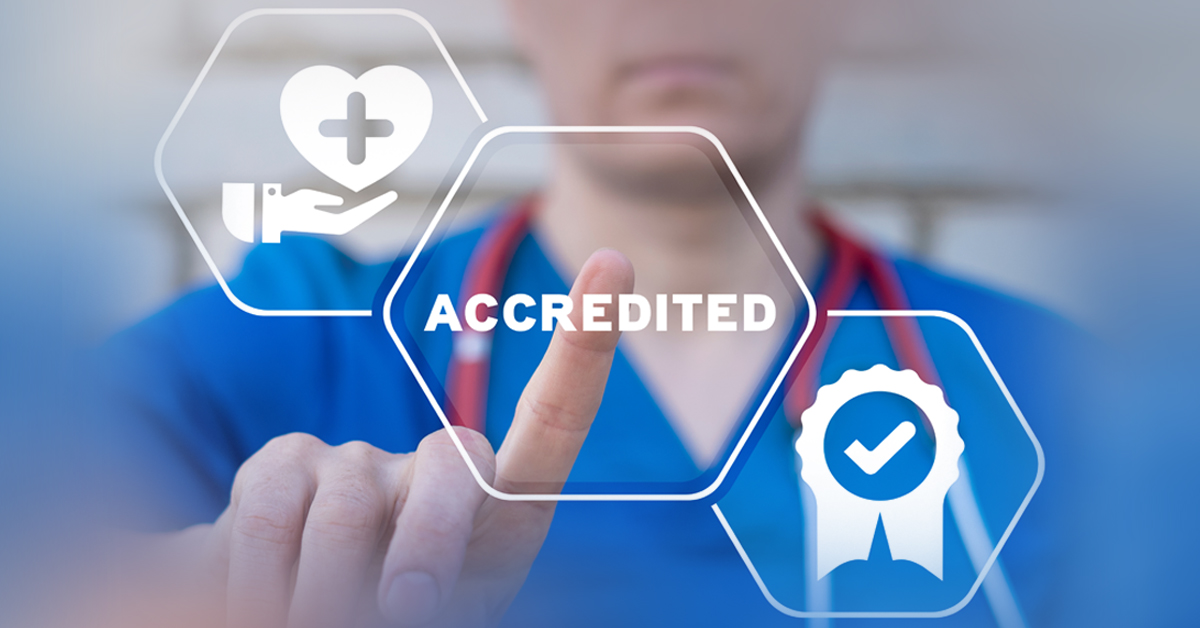
It Pays to Be Accredited
453%. That’s the return on investment for home care providers who are accredited by The Joint Commission.1 A recent study by The Joint Commission asserts accreditation delivers an average lifetime return on investment (ROI) of 453% for health services organizations. Meaning, for every dollar invested in improving quality and safety, organizations saw that dollar returned plus $4.53 more.
When choosing accreditation, not only are organizations choosing to meet the highest standards in the industry to validate and improve quality of care, but they are also choosing a ROI in surprising ways. From reduced staff turnover, to stronger patient satisfaction scores, to increased revenue and reimbursements. Accreditations pay for themselves.
About The Joint Commission
Founded in 1951, The Joint Commission is the nation’s oldest and largest standards-setting and accrediting body in health care. As an independent, not-for-profit organization, The Joint Commission seeks to continuously improve health care for the public, in collaboration with other stakeholders, by evaluating health care organizations and inspiring them to excel in providing safe and effective care of the highest quality and value.
What Does Accreditation Mean?
When a home health agency is accredited, it means that the agency has met the standards of the accrediting body in terms of operations, patient care, training, and safety. Accreditation acts as an external stamp of approval for the agency, showing that it follows industry standards and best practices.
Accreditation isn’t just about reputation. Going through the accreditation process streamlines operations, improves quality of care, and builds trust with patients and the community. In order to become accredited, the healthcare organization must prove compliance with the standards. This involves a rigorous process in which industry experts survey the organization’s structures and policies.
The Three Accrediting Agencies
There are three (3) primary bodies that provide accreditation to homecare, skilled homecare, hospice and palliative care, and each has a different variety of providers for whom they provide accreditation and consultative services. These are:
- The Joint Commission
- Community Health Accreditation Program (CHAP)
- Accreditation Commission for Health Care (AHCH)
Each of these three accrediting bodies follow a different process and has different requirements, but their objectives are the same: make sure people receive excellent health care.
What Are the Benefits of Accreditation for Healthcare?
Achieving accreditation in healthcare can have many benefits for an organization. Planning for accreditation can be a long and time-consuming process. It requires collaboration with administrators and leaders to update policies, procedures, and training materials.
Here are some of the worthwhile benefits of accreditations:
- Improved quality of care – accreditation requires holding staff to high standards of patient care.2
- Increased community confidence – accreditation demonstrates to patients that they can trust the organization to take care of them.
- Increased operational efficiency – a survey conducted by the Harvard Business Review found that management issues were the biggest challenges facing healthcare providers. In the Public Health Accreditation Board survey, 90% of respondents said accreditation improved the management processes of their leadership team.
- Competitive advantage – potential patients or partners are more likely to choose an accredited healthcare facility over one that is not accredited.
- Shared Resources – often, the accrediting body will share knowledge about improving policies and procedures to help keep up with best practices.
Why Become Accredited?
Seeking accreditation sends a message to partners and clients that you take your business seriously and are committed to providing the best care possible. Why become accredited? It’s an investment as well as opening doors to improved resources. Accreditation is not a simple task, but it is one that can take the business to the next level.
References:
- https://www.jointcommission.org/sitecore/media%20library/TJC/Documents/Accred%20and%20Cert/OME%20and%20PHMCY/Joint%20Commission%20Home%20Care%20ROI%20Study
- Alkhenizan A, Shaw C. Impact of accreditation on the quality of healthcare services: a systematic review of the literature. Annals of Saudi Medicine. 2011 Jul;31(4):407-16.
- Merrild P. The biggest US health care challenges are management challenges. Harvard Business Review. 2015.
- Devoti A. The benefits outweigh the costs involved. HomeCare Magazine. 2018, May, 29. [cited: 2023, February, 16] Available from: https://www.homecaremag.com/may-2018/why-go-through-accreditation-process.






